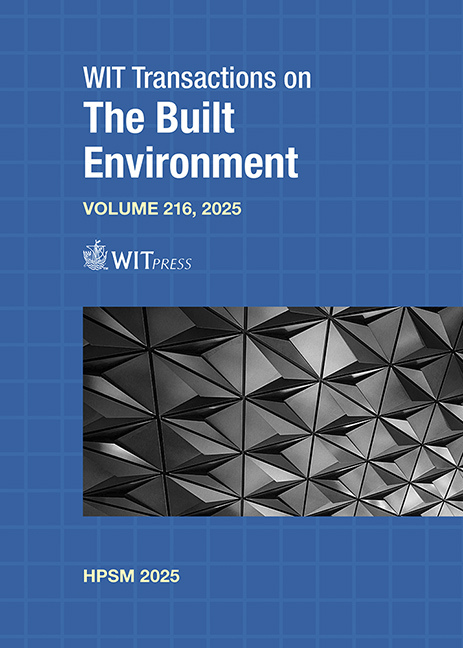RETHINKING HEALTHCARE ACCESS: META-DESIGN AND TECHNOLOGICAL INNOVATIONS FOR VULNERABLE POPULATIONS IN THIRD-SECTOR FACILITIES
Price
Free (open access)
Transaction
Volume
216
Pages
12
Page Range
109 - 120
Published
2025
Paper DOI
10.2495/HPSM250101
Copyright
Author(s)
LISA MENSI, SILVIA BRUNORO
Abstract
This paper addresses a critical issue both nationally and internationally: access to healthcare, a fundamental human right, as outlined in Article 25 of the Universal Declaration of Human Rights. This right includes medical care and the broader determinants of health, such as social, economic and physical environments, as well as individual characteristics and behaviours. While these determinants are widely acknowledged in other fields, healthcare design has lagged in addressing holistic well-being within healthcare settings. This issue is particularly significant for individuals who are not eligible for national healthcare systems, such as undocumented immigrants and impoverished populations, who often rely on third-sector organizations for assistance. This study proposes a meta-design framework aimed at improving both the spatial and service design of third-sector organizations that care for marginalized populations. The second part of the analysis explores the integration of appropriate technologies, where interventions often balance routine, temporary, humanitarian and emergency architecture. The goal is to design modular, energy-efficient and flexible clinics that can be assembled and disassembled as needed, while maintaining environmental sustainability – an essential consideration in contemporary construction practices, even for temporary structures. Finally, the implementation of the systems is presented to prove the efficiency and adaptability of the system.
Keywords
third-sector facility, healthcare design, sustainable construction, adaptable construction, design for disassembly





